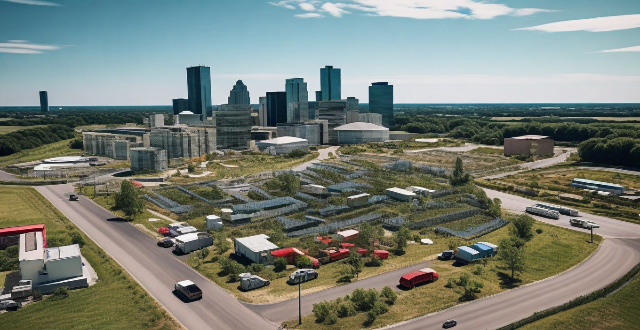Economic recovery affects industries differently based on their reliance on consumer spending, investment, government policies, and global markets. Consumer discretionary sectors like retail and hospitality are highly sensitive to economic fluctuations but can rebound quickly with increased consumer confidence. The technology sector often remains resilient during downturns, with continued growth in segments like software and online services. Manufacturing may face challenges due to supply chain disruptions but can rapidly expand with demand recovery. Financial services benefit from improved credit conditions and increased lending activities. Healthcare is generally less affected by economic cycles and can grow with aging populations. Energy sector recovery depends on global demand and policy shifts towards renewable energy. Understanding these differential impacts is crucial for investors, policymakers, and businesses to navigate the changing landscape effectively.

Economic Recovery: Differential Impact on Industries
Economic recovery, the period following a recession or downturn when economic activity begins to increase again, affects different industries in various ways. This is due to the unique characteristics and dynamics of each sector, including their reliance on consumer spending, investment, government policies, and global markets. Below, we delve into how economic recovery might influence several key industries differently:
Consumer Discretionary
Highlights:
- Highly sensitive to economic fluctuations
- Quick to rebound with increased consumer confidence
Details:
Industries like retail, leisure, and hospitality are typically the first to feel the pinch during an economic slowdown. However, they also tend to bounce back quickly as consumers regain confidence and start spending more freely.
Key Changes:
- Increased consumer spending
- Revival of tourism and travel
- Growth in demand for luxury goods
Technology
Highlights:
- Often resilient during downturns
- Continued growth in certain segments
Details:
While not entirely immune to economic cycles, technology sectors such as software, cloud computing, and online services often continue to grow even during downturns. The shift to remote work and digitalization can further boost these areas.
Key Changes:
- Expansion of remote work solutions
- Growth in e-commerce and digital payments
- Innovation in AI and data analytics
Manufacturing
Highlights:
- Sensitive to global supply chain disruptions
- Potential for rapid expansion with demand recovery
Details:
The manufacturing industry, particularly export-oriented sectors, may face challenges due to disruptions in global supply chains. However, as economies recover, there's potential for a quick ramp-up in production to meet renewed demand.
Key Changes:
- Restarting of production lines
- Increase in export orders
- Adoption of automation and advanced manufacturing techniques
Financial Services
Highlights:
- Benefit from improved credit conditions
- Increased lending activities
Details:
Banks and financial institutions play a crucial role in facilitating economic recovery by providing credit and financing options to businesses and consumers. As the economy improves, so does the health of loan portfolios and investment opportunities.
Key Changes:
- Easing of credit standards
- Increase in business and consumer loans
- Rising interest rates and improved profitability
Healthcare
Highlights:
- Generally less affected by economic cycles
- Potential for growth with aging populations
Details:
The healthcare sector is relatively insulated from typical economic fluctuations because of its essential nature and the steady demand for services. Demographic trends, such as aging populations, can further drive demand for healthcare services.
Key Changes:
- Expansion of medical facilities and equipment
- Growth in pharmaceutical research and development
- Increased focus on preventive care and wellness
Energy
Highlights:
- Vulnerable to swings in commodity prices
- Recovery depends on global demand and policy shifts
Details:
The energy sector, particularly fossil fuels, is heavily influenced by global demand, environmental regulations, and renewable energy transitions. Economic recovery can spur increased energy consumption but may also accelerate the shift towards cleaner energy sources.
Key Changes:
- Fluctuations in oil and gas prices
- Growth in renewable energy projects
- Adaptation to climate change policies
Each industry's trajectory during an economic recovery is shaped by its specific attributes and external factors such as government stimulus packages, regulatory changes, and global market dynamics. As economies begin to recover, understanding these differential impacts is crucial for investors, policymakers, and businesses alike to navigate the changing landscape effectively.